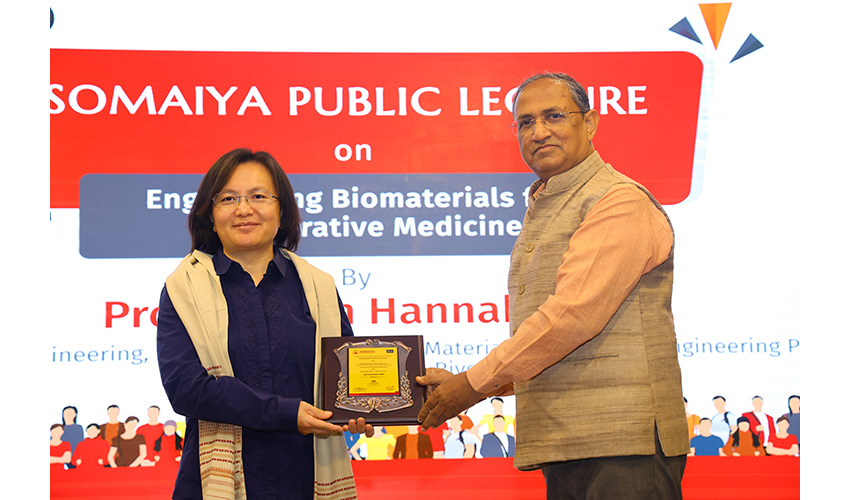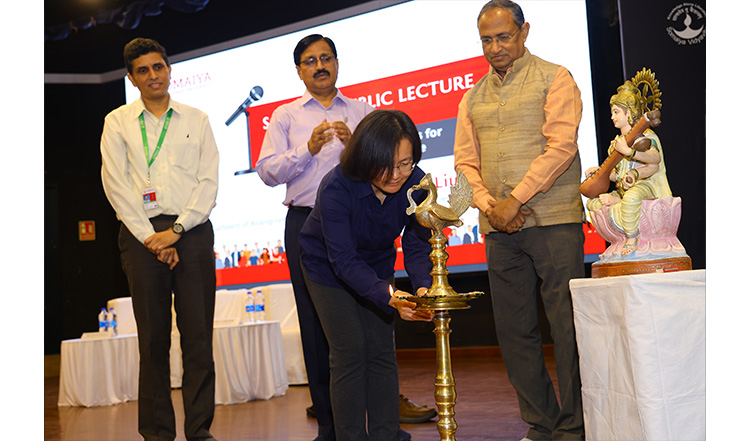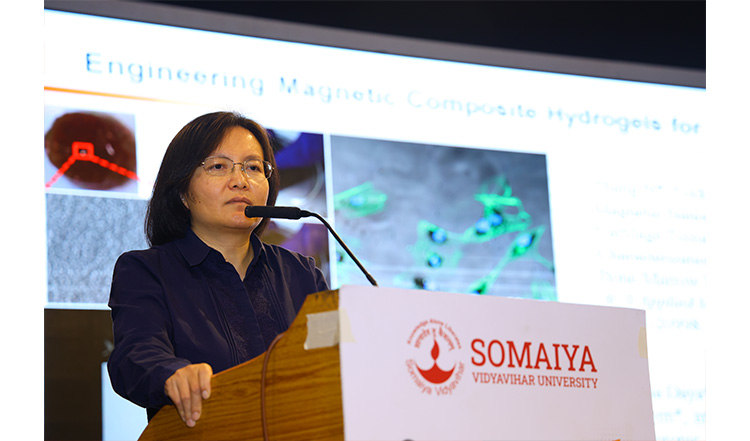
Somaiya Vidyavihar University recently hosted a public lecture by Prof. Huinan Hannah Liu, Associate Dean at the University of California, Riverside, on “Engineering Biomaterials for Regenerative Medicine.” Prof. Liu, a leading global expert, shared groundbreaking insights into the role of biomaterials in transforming healthcare, focusing on innovations that promise to revolutionize regenerative medicine.

Part of the university’s Public Lecture Series, which fosters intellectual engagement with global thought leaders, the event featured an inaugural address by Dr. Suresh Ukarande, Director of K J Somaiya School of Engineering. The gathering included distinguished guests such as Prof V N Rajasekharan Pillai, Vice Chancellor of Somaiya Vidyavihar University, and Prof. Satish Modh, Pro Vice-Chancellor- Strategy and Dean – of Faculty of Commerce and Business Studies.

Prof. Huinan H. Liu, Professor and Associate Dean at the Bourns College of Engineering, University of California, Riverside (UCR), specializes in bioengineering and materials science. With a Ph.D. in Biomedical Engineering from Brown University and M.S./B.S. degrees in Materials Science and Engineering from Purdue University and the University of Science and Technology, Beijing, her research focuses on biodegradable materials and nanostructured interfaces for tissue regeneration and infection control. Her lab has developed bioresorbable alloys, nanocomposites for tissue repair, and surface modification techniques, resulting in >120 journal articles, 4 books, 2 patents, and >80 invited talks. She has mentored 35 graduate and 164 undergraduate researchers since 2011.

Dr. Ukarande highlighted the significance of Prof. Liu’s work, particularly in biodegradable biomaterials that could redefine orthopedics. “Prof. Liu’s innovations, such as bioresorbable bone implants, could improve countless lives in the next 5–10 years,” he said.
In her address, Prof. Liu explored advancements in biodegradable implants and tissue regeneration, envisioning a future where bioresorbable alloys and nanostructured interfaces eliminate the need for surgical removal of implants. Her research, she noted, promises a more accessible and patient-centered healthcare model. The session concluded with a dynamic Q&A, where students and faculty engaged in a lively discussion about the clinical applications of biomaterials.






Leave a Reply